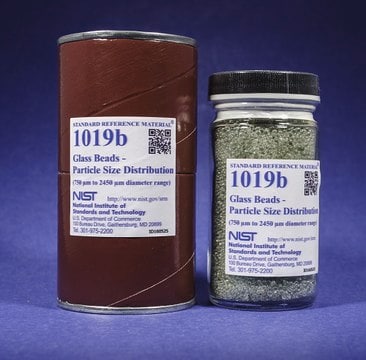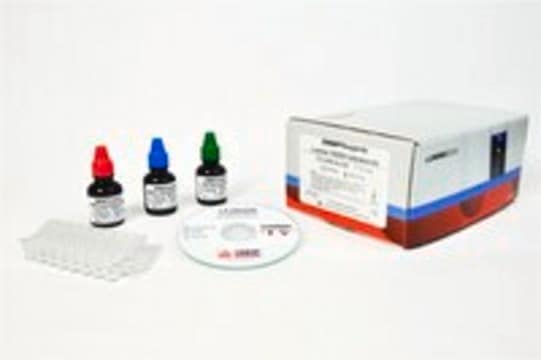MABS830
Anti-Acetyl CoA Carboxylase 1 Antibody, clone 7H4.2
clone 7H4.2, from mouse
Synonym(e):
ACC1, ACC-alpha
About This Item
Empfohlene Produkte
Biologische Quelle
mouse
Qualitätsniveau
Antikörperform
purified immunoglobulin
Antikörper-Produkttyp
primary antibodies
Klon
7H4.2, monoclonal
Speziesreaktivität
mouse, human
Verpackung
antibody small pack of 25 μg
Methode(n)
immunohistochemistry: suitable (paraffin)
western blot: suitable
Isotyp
IgG2bκ
NCBI-Hinterlegungsnummer
UniProt-Hinterlegungsnummer
Versandbedingung
ambient
Posttranslationale Modifikation Target
unmodified
Angaben zum Gen
human ... ACACA(31)
mouse ... Acaca(107476)
Verwandte Kategorien
Allgemeine Beschreibung
Spezifität
Immunogen
Anwendung
Western Blotting Analysis: 0.5 µg/mL from a representative lot detected Acetyl CoA Carboxylase 1 in 10 µg of NIH/3T3 cell lyate.
Qualität
Western Blotting Analysis: 0.5 µg/mL of this antibody detected Acetyl CoA Carboxylase 1 in 10 µg of A431 cell lysate.
Zielbeschreibung
Physikalische Form
Sonstige Hinweise
Not finding the right product?
Try our Produkt-Auswahlhilfe.
Empfehlung
Lagerklassenschlüssel
12 - Non Combustible Liquids
WGK
WGK 1
Analysenzertifikate (COA)
Suchen Sie nach Analysenzertifikate (COA), indem Sie die Lot-/Chargennummer des Produkts eingeben. Lot- und Chargennummern sind auf dem Produktetikett hinter den Wörtern ‘Lot’ oder ‘Batch’ (Lot oder Charge) zu finden.
Besitzen Sie dieses Produkt bereits?
In der Dokumentenbibliothek finden Sie die Dokumentation zu den Produkten, die Sie kürzlich erworben haben.
Unser Team von Wissenschaftlern verfügt über Erfahrung in allen Forschungsbereichen einschließlich Life Science, Materialwissenschaften, chemischer Synthese, Chromatographie, Analytik und vielen mehr..
Setzen Sie sich mit dem technischen Dienst in Verbindung.








